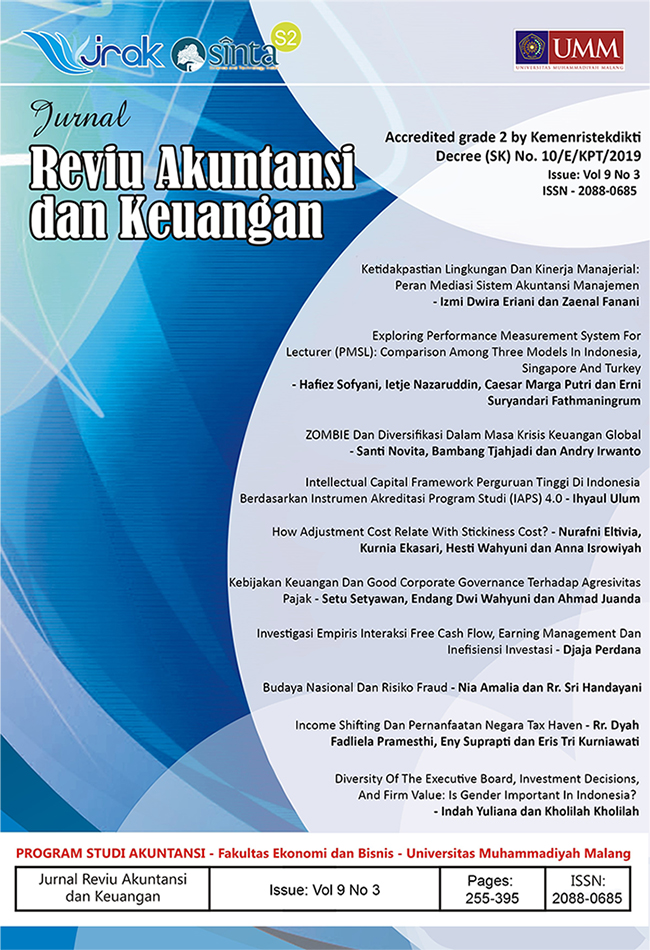INVESTIGASI EMPIRIS INTERAKSI FREE CASH FLOW, EARNING MANAGEMENT DAN INEFISIENSI INVESTASI
DOI:
https://doi.org/10.22219/jrak.v9i3.9772Keywords:
agency problems, discretionary accruals, earning management, free cash flow, investment inefficiencyAbstract
The level of Free cash flow has a pivotal role for investors to understand the inefficiency of a company's investment. This paper discusses empirical research that investigates the main effects of free cash flow and the effects of their interactions with earning management on investment inefficiency. This study uses a sample of 56 infrastructure, utility and transportation companies registered in Indonesian's Capital Market for the fiscal year ended on December 31, 2014 to 2018. This study uses a multiple regression method with the pooled ordinary least square (OLS) approach for 256 observational data. This study find that the main effect of free cash flow is significantly positive on investment inefficiency, but the earning management does not affect inefficiency investment. Furthermore this study find that the interaction effect of free cash flow is significantly negative on investment inefficiency if the amount of earning management is small.
Downloads
Downloads
Published
Issue
Section
License

Jurnal Reviu Akuntansi dan Keuangan is licensed under a Creative Commons Attribution-NonCommercial-ShareAlike 4.0 International License.
Authors who publish with this journal agree to the following terms:
- Authors retain copyright and grant the journal right of first publication with the work simultaneously licensed under a Creative Commons Attribution-NonCommercial-ShareAlike 4.0 International License that allows others to share the work with an acknowledgement of the work's authorship and initial publication in this journal.
- Authors are able to enter into separate, additional contractual arrangements for the non-exclusive distribution of the journal's published version of the work (e.g., post it to an institutional repository or publish it in a book), with an acknowledgement of its initial publication in this journal.
- Authors are permitted and encouraged to post their work online (e.g., in institutional repositories or on their website) prior to and during the submission process, as it can lead to productive exchanges, as well as earlier and greater citation of published work (See The Effect of Open Access).










